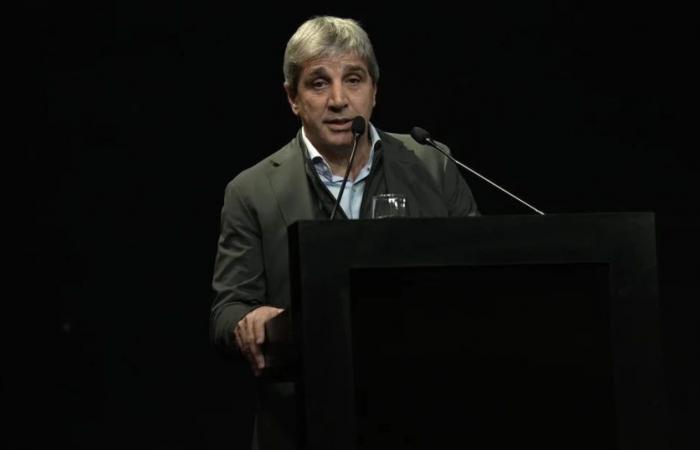
The Government’s honeymoon with the markets is behind us, but the expectation about the next steps remains intact. The approval of the Bases Law and the fiscal package is seen by investors as a springboard towards a relaunch of the economic planwhich should be implemented in the second semester that is about to begin.
The calendar and legislative times coincided in this case to support the idea of the beginning of a new stage. The tax measures approved by Congress will be those that will have the most concrete effect and will have to be followed closely. There will be an increase in collection in the short term due to the restitution of Profits, the possibility of paying for 5 years of Personal Assets together and the tax moratorium will provide additional income in the coming months, helping to consolidate the fiscal surplus.
Bleaching, on the other hand, also means dollar income through the financial system. However, it is not clear how much this could amount to. According to estimates based on calculations made by the IMF, it could reach USD 40 billion. The figure, at first glance, seems optimistic.
But beyond the package that was finally approved yesterday, all eyes will be on the next steps taken by the economic team. The Minister of Economy clarified last week that everything will remain the same: 2% monthly adjustment of the official exchange rate, a devaluation was ruled out and the “blend dollar” for exporters is maintained. That means that they can continue to liquidate 20% of their currencies through cash settlement instead of selling all their dollars to the Central.
Strengthening reserves was a central variable in the first months of the new government’s administration. It stopped the bleeding that the previous administration had suffered and strengthened the Central Bank. However, the process seems to have run its course and new alternatives must be sought after the halt in June.
Despite the confirmation of the own Luis Caputo, doubts continue to be the order of the day. Everything indicates that This scheme is getting closer to being exhaustedThe fact that the Central Bank ended June practically without buying foreign currency is an important wake-up call, thus interrupting several months of strong balances in its favour. Yesterday it ended again with a sales balance of USD 85 million.
Taking into account seasonal factors, the second half looks even more complicated to continue with the accumulation of reserves. Next month there are millionaire bond maturities, which would subtract no less than USD 2,000 million from the BCRA. But it is also expected that the foreign exchange income of agricultural exporters will fall, so the market would be even more unbalanced.
The economic team has the great challenge of finding a way around the difficulties in purchasing dollars that the Central Bank faces. Without an increase in reserves it is difficult for the country’s risk to decrease and that the Government regains access to the financial markets.
Furthermore, if the accumulation of reserves is not achieved, it will be almost impossible to get out of the exchange rate trap before the end of the year. The discussion among economists is underway. Some, like Ricardo Arriazu, Carlos Melconian or Domingo Cavallo They maintain that releasing exchange restrictions under these conditions could lead to hyperinflation. There are still many pesos in the market and the other side is a Central with practically zero net reserves (the previous government left them negative by almost 11,000 million dollars).
Others, like the now deputy Ricardo Lopez Murphy, They believe that the exit must be done as soon as possible so that Argentina can become a “normal country” again. Those who think this way believe that the impact of such an announcement would be very positive and would provoke a strong influx of dollars. However, both the President and the Minister of Economy consider that this is a very risky option.
In the coming months, progress should also be made on a new agreement with the IMF, which has already publicly indicated that it supports the “currency competition” that it presented. Javier Milei. However, so far there are no indications from the agency that it is willing to make a significant disbursement as part of the new program to strengthen the BCRA’s reserves. That was the main hypothesis that Caputo used, but it was diluted as the days went by.





